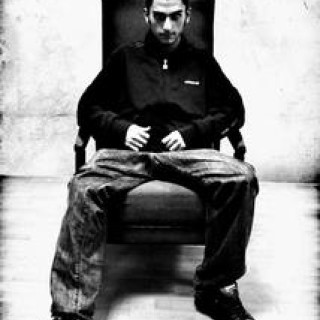
01.02.1969
145
Movie
Tekst piosenki
“2001” is a movie that might have been made by the hero of “Blow-Up,” and it’s fun to think about Kubrick really doing every dumb thing he wanted to do, building enormous science fiction sets and equipment, never even bothering to figure out what he was going to do with them. Fellini, too, had gotten carried away with the Erector Set approach to movie-making, but his big science-fiction construction, exposed to view at the end of “8½,” was abandoned. Kubrick never really made his movie either but he doesn’t seem to know it. Some people like the American International Pictures stuff because it’s rather idiotic and maybe some people love “2001” just because Kubrick did all that stupid stuff, acted out a kind of super sci-fi nut’s fantasy. In some ways it’s the biggest amateur movie of them all, complete even to the amateur-movie obligatory scene—the director’s little daughter (in curls) telling daddy what kind of present she wants.
There was a little pre-title sequence in “You Only Live Twice” with an astronaut out in space that was in a looser, more free style than “2001”—a daring little moment that I think was more fun than all of “2001.” It had an element of the unexpected, of the shock of finding death in space lyrical. Kubrick is carried away by the idea. The secondary title of “Dr. Strangelove,” which we took to be satiric, “How I learned to stop worrying and love the bomb,” was not, it now appears, altogether satiric for Kubrick. “2001” celebrates the invention of tools of death, as an evolutionary route to a higher order of non-human life. Kubrick literally learned to stop worrying and love the bomb; he’s become his own butt—the Herman Kahn of extraterrestrial games theory. The ponderous blurry appeal of the picture may be that it takes its stoned audience out of this world to a consoling vision of a graceful world of space, controlled by superior godlike minds, where the hero is reborn as an angelic baby. It has the dreamy somewhere-over-the-rainbow appeal of a new vision of heaven. “2001” is a celebration of cop-out. It says man is just a tiny nothing on the stairway to paradise, something better is coming, and it’s all out of your hands anyway. There’s an intelligence out there in space controlling your destiny from ape to angel, so just follow the slab. Drop up.
It’s a bad, bad sign when a movie director begins to think of himself as a myth-maker, and this limp myth of a grand plan that justifies slaughter and ends with resurrection has been around before. Kubrick’s story line—accounting for evolution by an extraterrestrial intelligence—is probably the most gloriously redundant plot of all time. And although his intentions may have been different, “2001” celebrates the end of man; those beautiful mushroom clouds at the end of “Strangelove” were no accident. In “2001, A Space Odyssey,” death and life are all the same: no point is made in the movie of Gary Lockwood’s death—the moment isn’t even defined—and the hero doesn’t discover that the hibernating scientists have become corpses. That’s unimportant in a movie about the beauties of resurrection. Trip off to join the cosmic intelligence and come back a better mind. And as the trip in the movie is the usual psychedelic light shows the audience doesn’t even have to worry about getting to Jupiter. They can go to heaven in Cinerama.
It isn’t accidental that we don’t care if the characters live or die; if Kubrick has made his people so uninteresting, it is partly because characters and individual fates just aren’t big enough for certain kinds of big movie directors. Big movie directors become generals in the arts; and they want subjects to match their new importance. Kubrick has announced that his next project is “Napoleon”—which, for a movie director, is the equivalent of Joan of Arc for an actress. Lester’s “savage” comments about affluence and malaise, Kubrick’s inspirational banality about how we will become as gods through machinery, are big-shot show-business deep thinking. This isn’t a new show-business phenomenon; it belongs to the genius tradition of the theatre. Big entrepreneurs, producers, and directors who stage big spectacular shows, even designers of large sets have traditionally begun to play the role of visionaries and thinkers and men with answers. They get too big for art. Is a work of art possible if pseudoscience and the technology of movie-making become more important to the “artist” than man? This is central to the failure of “2001.” It’s a monumentally unimaginative movie: Kubrick, with his $750,000 centrifuge, and in love with gigantic hardware and control panels, is the Belasco of science fiction. The special effects—though straight from the drawing board—are good and big and awesomely, expensively detailed. There’s a little more that’s good in the movie, when Kubrick doesn’t take himself too seriously—like the comic moment when the gliding space vehicles begin their Johann Strauss walk; that is to say, when the director shows a bit of a sense of proportion about what he’s doing, and sees things momentarily as comic when the movie doesn’t take itself with such idiot solemnity. The light-show trip is of no great distinction; compared to the work of experimental filmmakers like Jordan Belson, it’s third-rate. If big film directors are to get credit for doing badly what others have been doing brilliantly for years with no money, just because they’ve put it on a big screen, then businessmen are greater than poets and theft is art.
Tłumaczenie
Brak
Polecani artyści
Najnowsze teksty piosenek
Sprawdź teksty piosenek i albumy dodane w ciągu ostatnich 7 dni


























